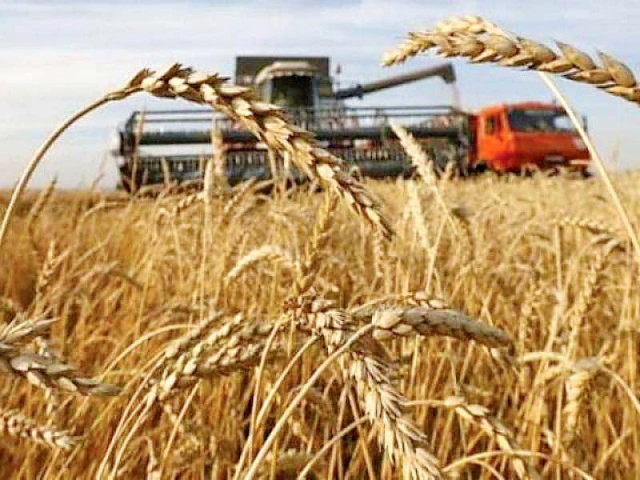Wheat import: Govt mulls increasing regulatory duty by 20%
Aims to avoid inflow of cheap wheat from Kazakhstan, protect farmers

Despite a huge subsidy on wheat export, there is no encouraging signal from any country to import Pakistan’s product due to lower prices in the international market. PHOTO: FILE
“The regulatory duty has already been increased on wheat import from 25% to 40% earlier this year and now it has been decided to further push it to 60% so that local traders cannot import cheap wheat from different countries, particularly Kazakhstan, at a low price,” said a senior officer in the Federal Secretariat.
“Despite a huge subsidy on wheat export, there is no encouraging signal from any country to import Pakistan’s commodity due to lower prices in the international market,” the officer said.
“We therefore have decided to jack up the regulatory duty once again by 20% to further protect our product,” added the officer.
In this regard, the Ministry of National Food Security and Research will soon present a summary to the Economic Coordination Committee (ECC) of the cabinet for approval.
Under the World Trade Organization (WTO) regime, a country cannot ban the import of any commodity and the regulatory duty is the only option to protect a local product.
Pakistan has had surplus wheat and the country has taken various steps lately to dispose it of by exporting to the international market. However, due to sharply lower prices in the world market, all strategies to sell the harvest have proved fruitless.
“Despite giving a substantial subsidy, we have failed to export our wheat and now we are concerned about the cheap wheat coming into the market,” said the officer.
At present, Pakistan has a wheat stock of 9.923 million tons with provinces and stores of the Pakistan Agriculture Supplies and Services Corporation (Passco).
The ECC in its decision in January 2015 had allowed export of 800,000 tons of wheat by the government of Punjab at a rebate of $55 per ton and 400,000 tons by the government of Sindh at a rebate of $45 per ton.
Later, the government increased the subsidy by $30, which has also proved ineffective.
Owing to a substantial fall in wheat prices in the international market, Punjab and Sindh could only export 252,650 tons and 164,000 tons, respectively.
It was proposed that the additional $30 rebate would be shared equally by the federal and provincial governments. The proposed quantity allowed to be exported is 600,000 and 300,000 tons for Punjab and Sindh, respectively. The export can be made till November 30, 2016.
Published in The Express Tribune, August 16th, 2016.
Like Business on Facebook, follow @TribuneBiz on Twitter to stay informed and join in the conversation.


















COMMENTS
Comments are moderated and generally will be posted if they are on-topic and not abusive.
For more information, please see our Comments FAQ